What Is a Rebuilt Engine? Facts & FAQ
-

- Last updated:
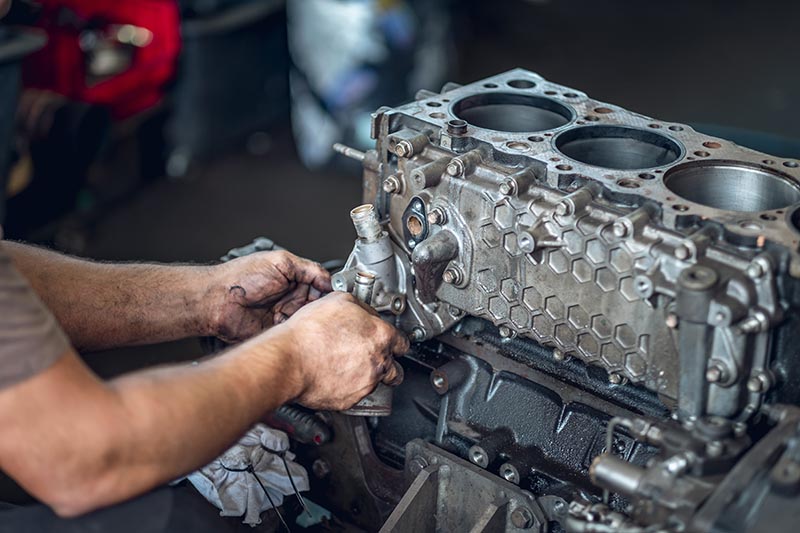
You have probably heard of many internal and external engine types that power our vehicles and other appliances. The best example of an internal combustion engine is a piston engine. On the flip side, the best example of an external combustion engine is a Stirling engine. But have you heard of rebuilt engines?
This article will expound more on rebuilt engines, focusing on some aspects such as the processes involved when rebuilding one and its pros and cons. So, let’s dig a little deeper!
What Is a Rebuilt Engine?
A rebuilt engine is simply an engine taken apart, cleaned, repaired, and reassembled. It is also called an overhauled engine. In other words, it was an old engine that was disassembled and put back together and looked as good as new.
Most auto repair facilities that sell rebuilt engines will also rebuild the transmission. The purpose of rebuilding an engine is to replace worn-out or damaged components with new ones. This way, you improve its performance and extend its lifespan.
Usually, a rebuilt engine has better performance than a new one because it’s been thoroughly cleaned, inspected, and adjusted by a qualified technician.
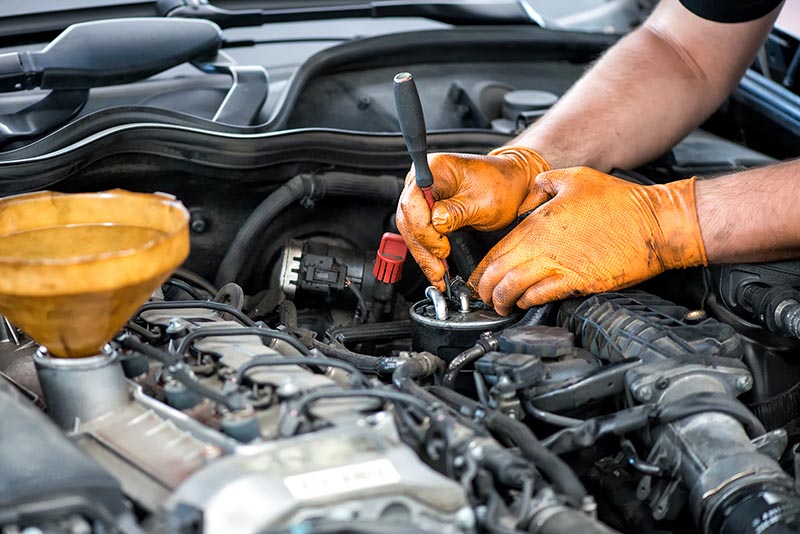
How Does a Rebuilt Engine Work?
A rebuilt engine works similarly to an ordinary engine. The only difference is that a rebuilt engine is disassembled, and damaged or worn-out components are replaced with new ones. Here are several processes involved in an engine rebuild:
- Removing and Disassembling the Engine Block: This step involves loosening any bolts or screws from around the engine block and lifting the old engine out of the vehicle. Each component, such as pistons, valves, and gaskets, is then removed and inspected for damage or wear.
- Cleaning: The parts are cleaned to remove all dirt, oil, and grime to ascertain the engine’s condition. This may take a few hours or even days depending on the engine size and the dirt accumulated over long use.
- Replacing Damaged Components: The worn-out components are replaced with new or refurbished components that meet Original Equipment Manufacturer (OEM) Standards. The primary engine components that may need a replacement include bearings, gaskets, lubricants, piston rings, valves, and seals.
- Reconditioning the Cylinders’ Internal Surfaces; The internal surfaces of your engine’s cylinders are reconditioned to ensure each cylinder surface is perfectly smooth. This way, it can seal properly when the valve train components are installed.
- Reassembling: The final step is the reassembly of all engine accessories and putting the rebuilt engine in place. The engine rebuilding process is complete when the rebuilt engine is ready for reinstallation. The engine block is installed onto its mounts, and the heads are bolted on. The cooling system is also installed with new gaskets and hoses for a leak-free seal. The carburetor or fuel injection unit is reinstalled, and the exhaust system is fixed. The distributor cap and wires are connected, along with all other electrical connections.
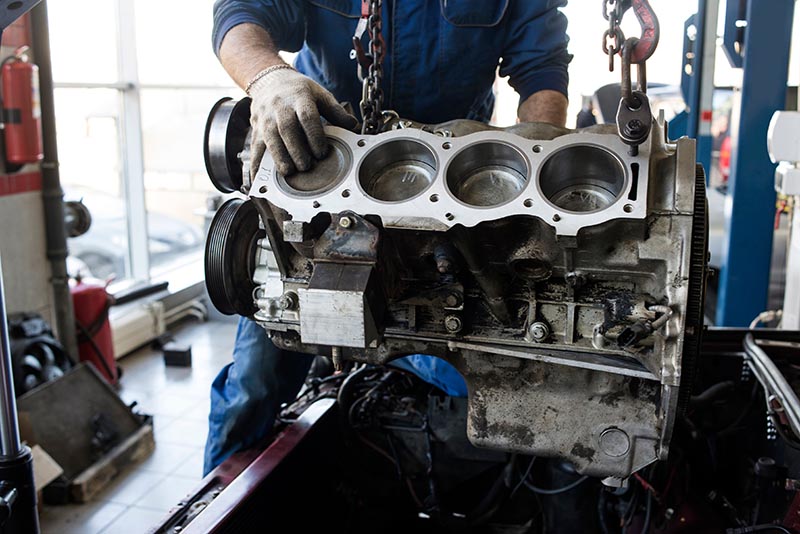
When Is an Engine Rebuilding Necessary?
Engine rebuilds are necessary for various reasons. Some are more common than others, but no matter the cause, it’s crucial to get your engine fixed as soon as possible. Here are several instances where you might need an engine rebuilt:
Worn Engine Bearings
The engine bearings are the most common cause of engine rebuilds. When the bearings wear, the crankshaft moves back and forth, eventually damaging other internal components. It’s crucial to have your engine bearings replaced as soon as possible if this happens to your vehicle.
Worn Piston Rings
Piston rings are part of the engine’s cylinder walls. They seal off pressure from inside the cylinders. They don’t blow out past the piston during combustion (when fuel is burned).
If these rings become worn out over time, they won’t seal well. They will also allow pressure to escape through them during combustion. It can cause many problems with your car, like oil leaks and even major engine failure.
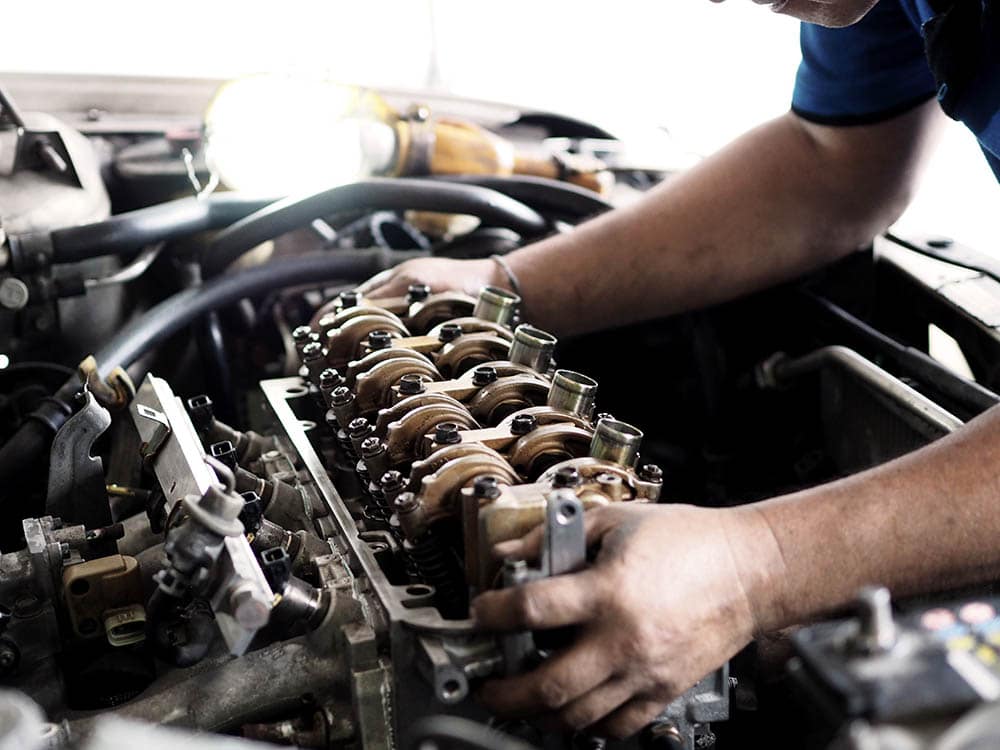
Overheating
Overheating is a common reason for an engine rebuild. When the temperature gauge on your dashboard is reading hot, there’s a problem with your cooling system or radiator. It can also mean a leak in an engine gasket or sealant in the motor.
The most common cause of overheating is a cracked head gasket¹ or warped cylinder head. It causes the coolant to leak into combustion chambers. Also, it reduces compression and causes power loss. You’ll need an engine rebuild if a professional mechanic has done a proper diagnosis.
Improper Lubrication
Improper lubrication is the most common cause of engine failure. It is caused by failure to change oil and filter often. The engine can suffer from metal-to-metal contact if you don’t change your oil often.
Another cause of improper lubrication is faulty engine seals. If one of the seals fails, it can allow contaminants into the engine. It can also lead to wear and tear on many different components.
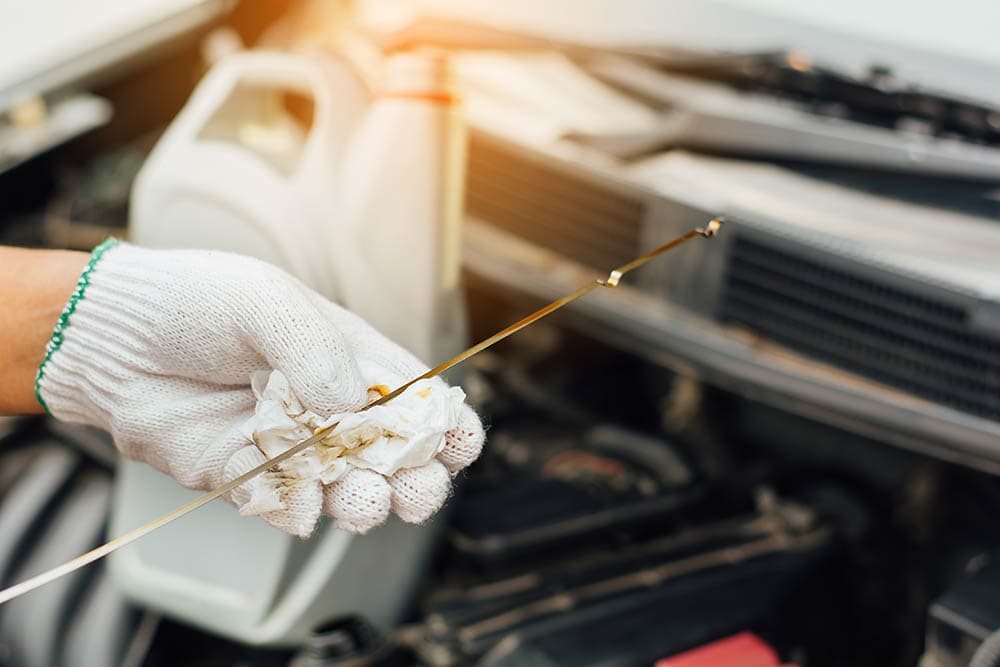
Detonation
Detonation is caused by unburned fuel in the combustion chamber, which ignites suddenly under high pressure. This sudden ignition leads to a shock wave that can damage some engine components. In most cases, detonation occurs when an engine is running too lean.
It can happen when a vehicle experiences a sudden loss of power or runs at high speeds with low octane fuel. Some engines are designed to run on low-octane fuel, but all engines will suffer from detonation if they don’t have enough octane to burn efficiently.
Where Is a Rebuilt Engine Used?
A rebuilt engine is an excellent choice for those who want to save money on vehicle maintenance. The most common use for a rebuilt engine is in cars and trucks, boats, and other vehicles that use combustion engines. Some people also use them to run agricultural equipment such as tractors and lawnmowers.
The most common cars that use a rebuilt engine are older model vehicles. As time goes by, these vehicles’ engines lose their power. But with new components and some extra work, you can restore your vehicle’s performance to its original condition or even beyond it.
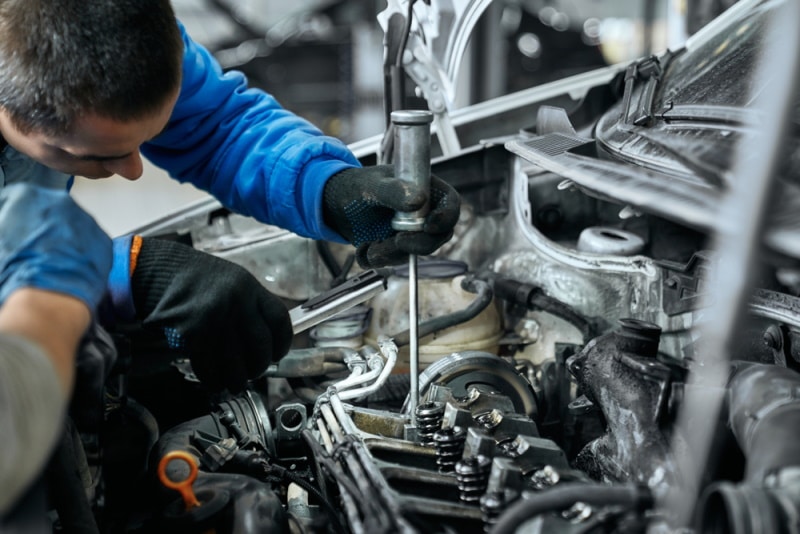
Advantages of Rebuilt Engines
- Rebuilding an engine minimizes scrap in the environment
- It has improved performance than the original engine.
- Rebuilding the engine prolongs its life
- Damaged components are replaced
- Replaced components meet or surpass the quality standards of the original engine components
- Rebuilding an engine is more affordable than buying a new engine
- It increases fuel efficiency and horsepower
Disadvantages of Rebuild Engines
- Mixing old and new engine components can shorten the lifespan of your vehicle
- Some components used in engine rebuilding may have wear and tear that you cannot see
- Engine rebuilds take time
How Long Does a Rebuilt Engine Last?
The typical lifespan of a rebuilt engine is 150,000 miles if maintained well. But this depends on how well the vehicle was maintained. Perhaps you have records of regular oil changes and other routine maintenance performed on your vehicle. If yes, you can get more mileage out of it than someone who doesn’t keep up with their car’s needs.
A rebuilt engine lasts long when redesigned by an expert technician using high-quality engine replacement components. Some of the engine components used to rebuild the engine surpass the set standards and specs of the previous engine. It makes them more durable.
Besides this, other factors affect the longevity of a rebuilt engine as seen below:
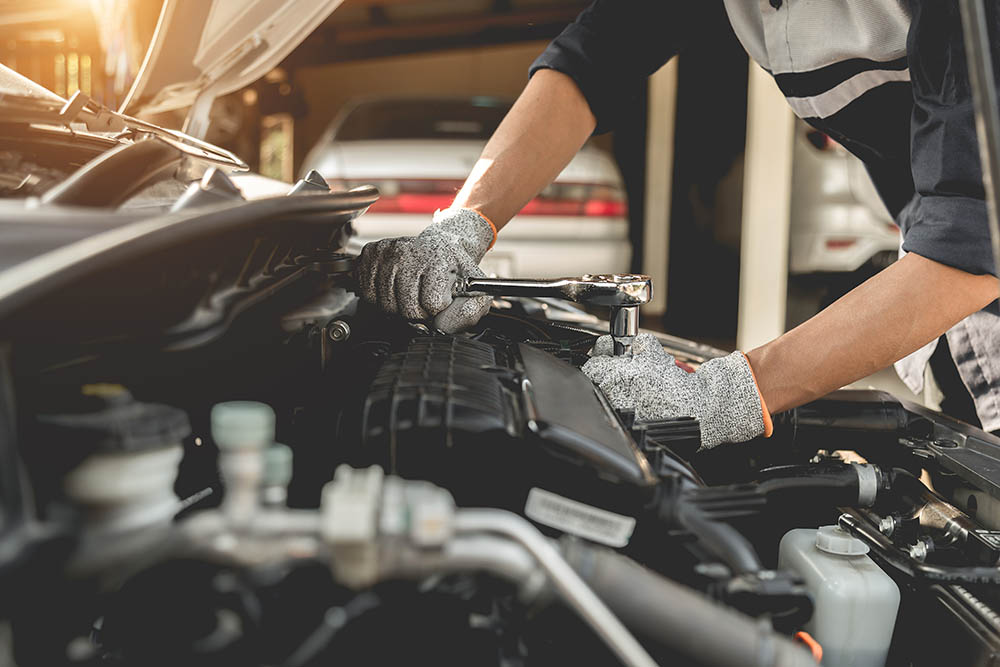
Professional Rebuilding
Some shops have more experienced staff for rebuilding engines. It can make all the difference when it comes to how long your rebuilt engine lasts.
Find professionals who are specialized in your vehicle brand. You can trust them to handle your engine rebuild project. Don’t take your engine to be rebuilt at a regular mechanics shop. It may be cheaper, but it’s more dangerous and there’s no guarantee your rebuilt engine will keep operating after rebuilding it.
Compatibility of the New Engine Components
For a rebuilt engine to last for years, it must be matched with its components. The compatibility of these components determines how well the rebuilt engine will perform. Components like valve springs, seals, gaskets, and bearings should be compatible. All these components work in tandem. They guarantee your rebuilt engine longevity and excellent engine performance.
Does It Have the Right Oil Filter Installed?
The oil filter is one of the essential parts of your vehicle. It plays a vital role in the lifespan of your rebuilt engine. It removes contaminants from the oil and keeps your engine from overheating. When the oil filter is not installed well, it can cause severe damage to the engine, calling for costly repairs. A faulty filter definitely shortens the longevity of a rebuilt engine.

FAQs
How Much Does an Engine Rebuild Cost?
A complete engine rebuild can cost anywhere from $2,500–$4,500 or even more. It depends on the transmission used and the labor needed to do the job. The size, make, model of the engine, and condition of the parts involved are also factors that affect this cost.
Is a Rebuilt Engine as Good as New?
Yes, rebuilt engines are as good as new ones. When you replace an engine, you’re getting a brand-new one rebuilt from scratch. It means that every part in your engine has been replaced with a new component. A rebuilt engine will have all its old parts replaced with new ones.
They’ll be cleaned thoroughly so that there aren’t any contaminants left in them from previous use. Besides, there won’t be any contaminants from being stored outside for long periods in areas where dust accumulation is common. It makes it more likely that your car will run smoothly after you install it.
Rebuilding an engine allows you to keep using your current vehicle without buying a new one. Also, the warranty program of the engine manufacturer backs rebuilt engines. So, they’re reliable.
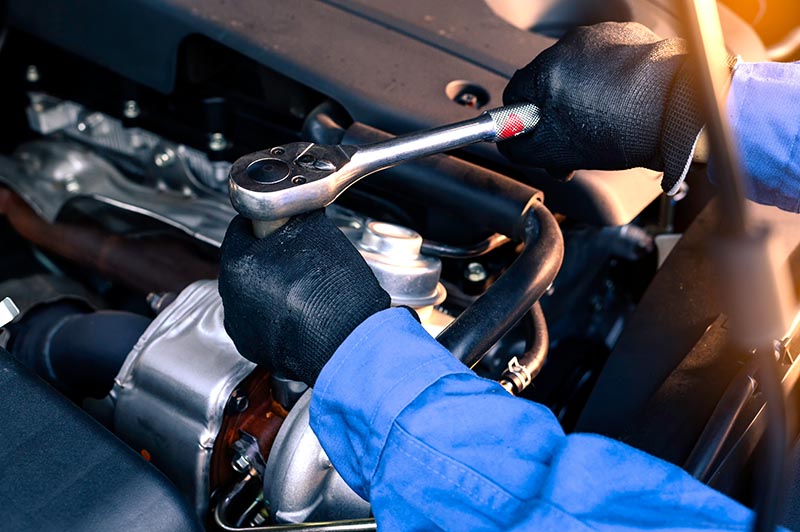
Can You Rebuild the Engine Yourself?
You can rebuild your engine if you’re experienced. The primary thing you need to do is ensure you have suitable tools and equipment so that everything will come together smoothly. It’s especially true when it comes to rebuilding an engine. Many components need to be taken apart and put back together again.
Remember that rebuilding the engine yourself is a massive task. It’s not for the faint-hearted, so you should seek the services of an experienced and insured automobile shop.
Can You Reset Mileage if You Use a Rebuilt Engine?
You cannot reset the mileage if you use a rebuilt engine. Also, you cannot reset the odometer if you use an aftermarket or rebuilt engine in your vehicle. There are laws in place that prevent these modifications on vehicles.
You’ll face legal charges if you set the odometer manually. The changing status of the engine should be documented. Besides, the change in mileage should be calculated.
If you have a heavy-duty truck, things get more complicated. There are some states where this practice is legal and others where it isn’t allowed at all.
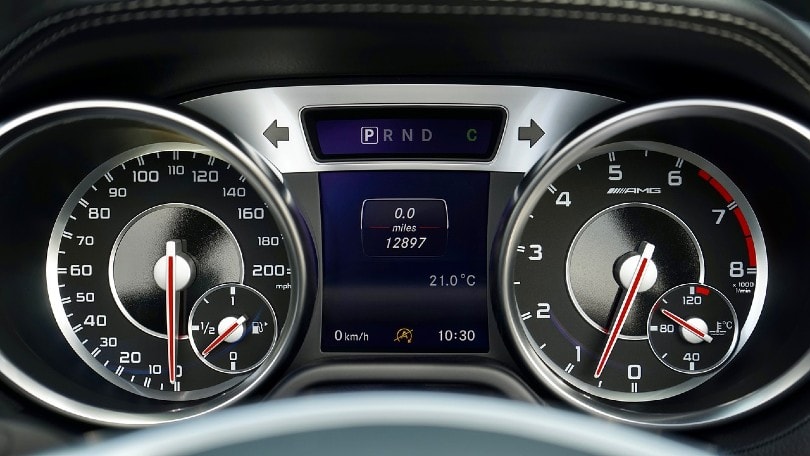
Conclusion
A rebuilt engine can be an excellent option for older vehicles that need an engine replacement. You are guaranteed another 100,000 or more miles on your vehicle. Although that may not be possible for every car, it’s worth checking out if you’ve been looking for an affordable fix.
The engine is the same basic engine based on the same design, but it’s cheaper because it’s been used previously. So, if you’re in the market for a rebuilt engine, do your research. Choose a reputable supplier that has served other satisfied customers before.
- Engine Rebuild Processes
- Advantages and Disadvantages of Rebuild Engines
- How Much Does an Engine Rebuild Cost?
- CORNELL LAW SCHOOL
- https://www.centraliatransmissions.com/blog/engine-rebuild-needed-causes.html
- https://marvlsengines.com/how-long-is-a-rebuilt-engine/
- https://marvlsengines.com/how-long-is-a-rebuilt-engine/
- https://www.enginereplacementofatlanta.com/is-a-rebuilt-engine-as-good-as-new/
- https://www.enginereplacementofatlanta.com/is-a-rebuilt-engine-as-good-as-new/
- https://iq-faq.com/en/Q%26A/page=9be9537015129b83f9a4f0de4d177d09
- https://www.rac.co.uk/drive/advice/car-maintenance/head-gasket-guide-why-does-it-fail-and-how-can-i-tell/
- https://northwestenginecentre.co.uk/engines/
- https://www.law.cornell.edu/cfr/text/40/1068.120
Featured Image Credit: slaved, Shutterstock
Contents

